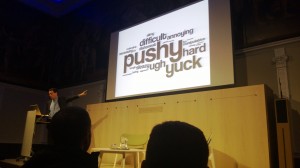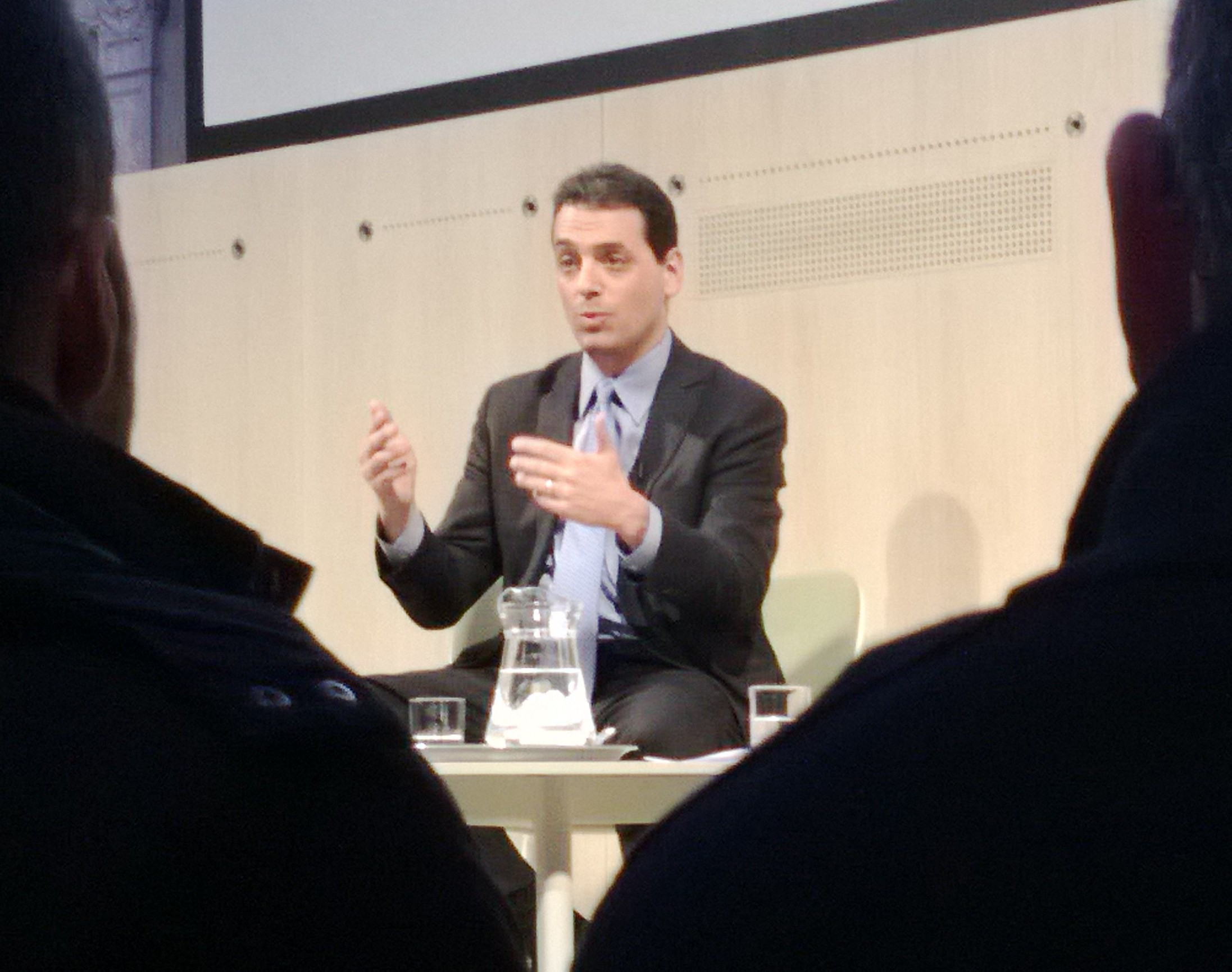I had the pleasure of listening to Daniel Pink talk at the RSA this week about sales. It was definitely a privilege – there was a 750-person waiting list, one of the largest in the RSA talk’s history – at least in part due to Daniel’s previous talk, which was a big hit with its RSA Animate video:
“The Surprising truth about moving others.”
The title of this evening’s talk caught my attention because I know that a huge amount of project time is spent ‘selling’ – it’s something Milestone Planner users mention time and time again. So, Dan’s opening gambit? Like it or not, we are all in sales now.
When asked “what percentage of your work involved convincing, or persuading people to give up something they value, for something you can offer?” People responded that it accounted for 41% of their time on the job. That’s 24 mins of every hour spent doing, as Daniel put it, things that are “kinda, sorta like sales” or “non-sales selling.” That’s a pretty striking statistic.
We’re all in sales now
“Non-sales selling” is selling, but where no money changes hands. Think of it as sales denominated in attention, resource and all sorts of other non-cash things. Dan’s logic, is that if 1 in 10 people are in sales-sales, and 9 in 10 are doing non-sales selling… Then that puts ten out of ten people in sales, regardless of the cats preferring it.

And here is a thing: Almost universally, we don’t like sales. Dan’s research asked “When you think of sales or selling what is the first word that comes to mind?” The answers were not pretty. So why does it have such a negative connotation in our culture? He argued that the reputation of sales comes from the context of selling, not the process. The history of sales is a history of ‘information asymmetry.’ Traditionally the salesperson had the information, and the power, which puts us as buyers ‘on guard….’ Remember ‘buyer beware’ and all that comes with it? Information asymmetry. Now it’s a world of seller beware… The premium in sales has shifted from problem solving, to problem finding. Solutions are often obvious, problems rarely are (at least not until it is too late), so it’s a much more valuable skill.
From Surviving to Thriving in Sales
Dan’s research cites three keys to thriving in a world of selling: Attunement, buoyancy and clarity. The problem with sales is that, in the words of one sales person, every day you face an ocean of rejection. The key to surviving that rests in “Buoyancy” – your explaining style. How do you explain failure? Research by Marty Seligman (who has also spoken at the RSA), has shown that the way we explain failures to ourselves and others is key in how we recover from them. There is a growing body of research that is finding ways to build resiliency into our character. Enabling people to recover from set backs.
Avoiding rejection in the first place is obviously a good strategy too, and that’s where attunement and clarity come in. Successful sales people cut through the noise and get to the signal. This is clarity. Clearly stating things, and removing confusion, is a powerful tool of persuasion. Dan listed a number of rules for attunement, the first of which was to “Increase your power by reducing it.” Leadership qualities came up a number of times during the talk, and Jim Collins was heavily referenced. Collins and other researchers point out that humility is a key leadership skill.
 One of the keys to attunement is aligning with the receiver of your message. Match the conventions of the recipient. A common cause of failure, particularly in technical sales, is that people use their own language, not the language of their customers. Don’t use your own technical terms, use your customers’ terms. Communicate your project or product in the language of the people you are trying to persuade, and connect with them.
One of the keys to attunement is aligning with the receiver of your message. Match the conventions of the recipient. A common cause of failure, particularly in technical sales, is that people use their own language, not the language of their customers. Don’t use your own technical terms, use your customers’ terms. Communicate your project or product in the language of the people you are trying to persuade, and connect with them.
Here was an interesting myth that was blown apart during the evening: Are sales people extroverts? Or do you have to be extroverted to be a good sales person? Research shows that extroverts are more likely to go into sales, more likely to get promoted, and generally get on, but actually, the correlation between introversion/extroversion and success in sales is non-existent. Actually, the best sales people are ‘ambiverts‘ – those who are neither strongly introverted, nor extroverted actually, and can adapt their style. Strong introverts and strong extroverts both do badly in sales.
Attunement, buoyancy and clarity
There was much more discussed during the evening and the audience Q&A afterwards – I suspect many of the topics covered are in Dan’s latest book, which you might want to grab from Amazon: To Sell is Human: The Surprising Truth About Persuading, Convincing, and Influencing Others
Attunement, buoyancy and clarity was definitely the key message. Welcome to sales, or at least the non-salesy selling of your next project…


Trackbacks/Pingbacks